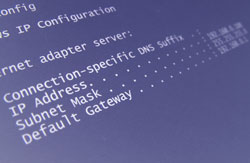Raising awareness of IPv6 among the scientific community
The current version of Internet protocol (IP version 4) has several shortcomings which complicate, and in some cases present a barrier to, the further development of the Internet. The 32-bits of address space are limiting, while the development of new IP version 6 promises to provide a feature-rich environment for the future of global networking. The deployment of IPv6 in Europe has recently been boosted by the Framework Programmes of the European Commission. Funding was granted for the 6NET project that focused on gaining practical operational experience of IPv6 deployment and to test migration strategies from existing IPv4-based networks. A pan-European native IPv6 network connecting sixteen countries was built to extensively test a variety of new IPv6 services and applications, as well as interoperability with legacy applications. While IPv6 has additional features to IPv4, such as mobility and security support, these weren't attractive enough to motivate a significant number of companies to develop IPv6 implementations. On the other hand, academic networks, being keen on new technologies and not strictly interested in immediate profit, provided it to their users for experimentation. The Westfälischen Wilhelms-Universität in Münster was assigned with the task to prepare for the deployment of IPv6 in the production environment of the Gigabit-Wissenschaftsnetz (G-WiN). This is the national part of the German research network, which is under the responsibility of the Deutsche Forschungsnetz - Verein, and the 'heart of the Internet for science in Germany'. Within the 6NET project the Deutsche Forschungsnetz - Verein had another German partner. The Fraunhofer Institute Fokus worked on providing a technical solution that not only enables mobile and session initiation protocol services in IPv6 networks, but also in heterogeneous environments. The success of this IPv6 test bed spurred the existing GÉANT networks to move to dual-stack operation earlier than anticipated. Moreover, other National Research and Education Networks (NRENs) were encouraged to offer production IPv6 services.







